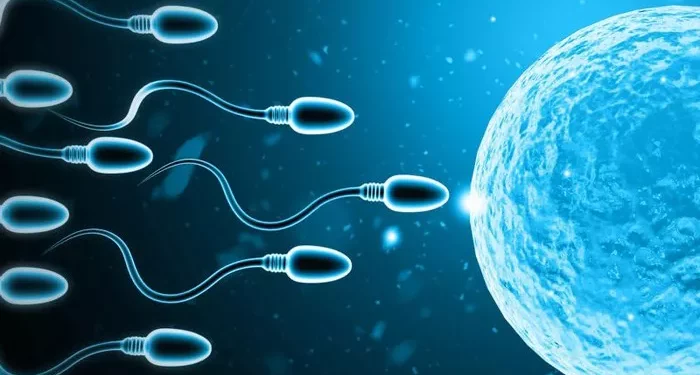Infertility affects many couples worldwide, and male fertility plays a crucial role in this. Understanding sperm health is essential for anyone concerned about their fertility. This article will guide you through the process of determining if your sperm are fertile.
Understanding Sperm Health
Sperm health is determined by several factors. These include sperm count, motility, morphology, and DNA integrity. Each factor plays a role in the ability of sperm to fertilize an egg and result in a successful pregnancy.
Sperm Count
Sperm count refers to the number of sperm present in a semen sample. A higher count increases the chances of one sperm reaching and fertilizing the egg. A normal sperm count is considered to be over 15 million sperm per milliliter of semen.
Sperm Motility
Sperm motility is the ability of sperm to move efficiently. Healthy sperm move in a straight line or large circles and are crucial for reaching and fertilizing the egg. Poor motility can hinder the chances of conception.
Sperm Morphology
Sperm morphology refers to the size and shape of the sperm. Normal sperm have an oval head and a long tail. Abnormalities in shape can affect the sperm‘s ability to penetrate and fertilize the egg.
DNA Integrity
DNA integrity is vital for the proper function of sperm. Damaged DNA can lead to unsuccessful fertilization, early miscarriage, or developmental issues in the fetus.
Symptoms of Infertility
Many men do not exhibit clear symptoms of infertility. However, certain signs can indicate potential issues.
Hormonal Imbalance
Symptoms like reduced facial or body hair, decreased libido, or other signs of hormonal imbalance can indicate fertility issues.
Testicular Problems
Swelling, pain, or lumps in the testicles can be symptoms of underlying problems that might affect sperm production and quality.
Ejaculation Issues
Difficulty with ejaculation, small volumes of fluid during ejaculation, or an inability to ejaculate can all be indicators of infertility.
See Also: Do You Know How Azoospermia Occurs?
Causes of Male Infertility
Various factors can contribute to male infertility. Understanding these can help in addressing the root cause.
Medical Conditions
Varicocele
Varicocele is a swelling of the veins that drain the testicle and is a common reversible cause of male infertility.
Infections
Certain infections can interfere with sperm production or sperm health. These include sexually transmitted infections (STIs), inflammation of the epididymis (epididymitis), or testicles (orchitis).
Ejaculation Issues
Retrograde ejaculation occurs when semen enters the bladder instead of emerging out of the penis during orgasm, leading to infertility.
Antibodies That Attack Sperm
Anti-sperm antibodies can mistakenly identify sperm as harmful invaders and attempt to eliminate them.
Environmental Factors
Exposure to Toxins
Chemicals and toxins like pesticides, heavy metals, and radiation can negatively impact sperm production and quality.
Heat Exposure
Frequent exposure to high temperatures can impair sperm production. This includes frequent use of hot tubs or saunas.
Lifestyle Factors
Drug Use
Substance abuse, including anabolic steroids and illicit drugs, can affect sperm production and quality.
Alcohol and Tobacco
Excessive alcohol consumption and smoking can lead to reduced sperm count and motility.
Obesity
Being overweight or obese can affect sperm production and lower fertility.
Testing Sperm Fertility
To determine if your sperm are fertile, several tests can be conducted. These tests assess various aspects of sperm health.
Semen Analysis
A semen analysis is the most common test for assessing sperm health. It evaluates sperm count, motility, morphology, and the presence of white blood cells or infection.
Procedure
- Sample Collection: The sample is typically collected through masturbation into a sterile container.
- Analysis: The sample is analyzed in a lab to measure various parameters.
Interpreting Results
Normal values for semen analysis include:
- Sperm count: Over 15 million sperm per milliliter.
- Motility: At least 40% of the sperm should be motile.
- Morphology: At least 4% of the sperm should have normal shape.
Hormone Testing
Hormone tests can help determine if hormonal imbalances are affecting sperm production. Common hormones tested include:
Testosterone: Low levels can affect sperm production.
Follicle-Stimulating Hormone (FSH): High levels may indicate a problem with sperm production.
Luteinizing Hormone (LH): Imbalances can affect testosterone production.
Genetic Testing
Genetic testing can identify chromosomal abnormalities or genetic conditions affecting sperm production and function. Common tests include:
Karyotype Analysis: Checks for chromosomal abnormalities.
Y Chromosome Microdeletion Testing: Identifies deletions in the Y chromosome affecting sperm production.
Testicular Biopsy
A testicular biopsy involves taking a small sample of testicular tissue to examine sperm production directly. This is usually done if other tests indicate severe abnormalities.
Anti-Sperm Antibody Testing
This test checks for the presence of antibodies that might be attacking sperm. These antibodies can interfere with sperm‘s ability to move and fertilize the egg.
Specialized Sperm Function Tests
Tests like the sperm penetration assay or the hypo-osmotic swelling test assess sperm‘s ability to penetrate and fertilize an egg.
Improving Sperm Fertility
If tests indicate poor sperm health, there are several steps you can take to improve fertility.
Medical Treatments
Medications
Certain medications can treat underlying conditions affecting fertility. These include antibiotics for infections or hormone treatments for hormonal imbalances.
Surgery
Surgical options can correct issues like varicocele or blockages in the reproductive tract.
Lifestyle Changes
Diet and Nutrition
A healthy diet rich in antioxidants, vitamins, and minerals can improve sperm health. Foods like fruits, vegetables, nuts, and fish are beneficial.
Exercise
Regular exercise can improve overall health and boost testosterone levels. However, avoid excessive exercise, which can have the opposite effect.
Avoiding Toxins
Reducing exposure to environmental toxins and harmful chemicals can improve sperm quality. This includes avoiding smoking and limiting alcohol consumption.
Maintaining a Healthy Weight
Maintaining a healthy weight through diet and exercise can improve hormonal balance and sperm production.
Stress Management
Stress can negatively impact sperm production. Practicing stress-reducing techniques like meditation, yoga, or deep breathing can be beneficial.
When to See a Doctor
If you’ve been trying to conceive for a year without success, it’s time to see a doctor. Earlier evaluation is recommended if there are obvious signs of infertility or if you or your partner are over 35.
Initial Consultation
During the initial consultation, your doctor will take a detailed medical history, perform a physical examination, and recommend appropriate tests.
Referral to a Specialist
You might be referred to a fertility specialist or urologist for further evaluation and treatment if necessary.
Conclusion
Understanding sperm health and identifying potential issues early can significantly increase your chances of conceiving. Regular check-ups, maintaining a healthy lifestyle, and seeking professional advice when needed are crucial steps in ensuring your fertility. By taking proactive measures, you can enhance your reproductive health and improve your chances of starting or expanding your family.
Related Links:



























